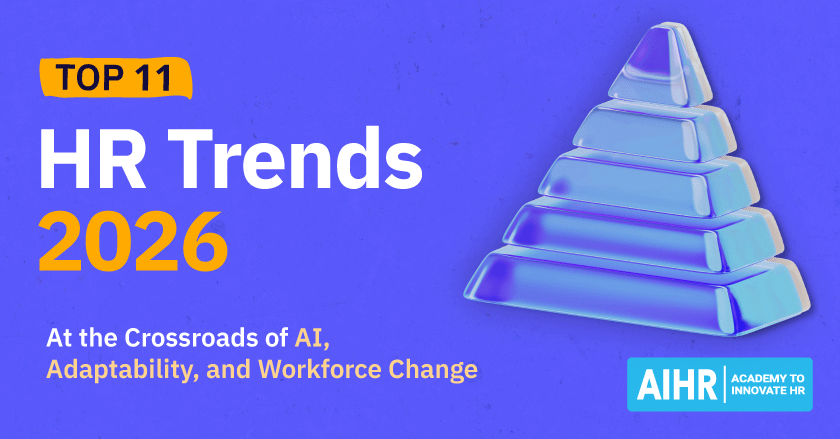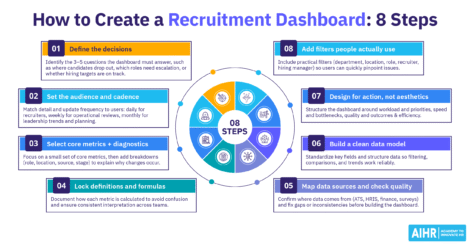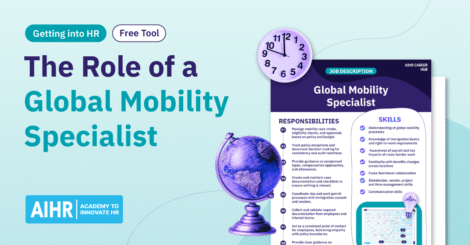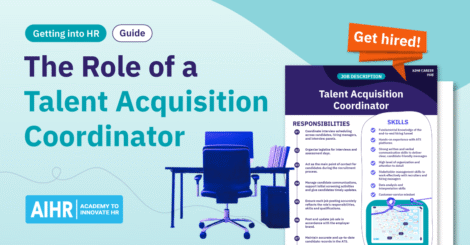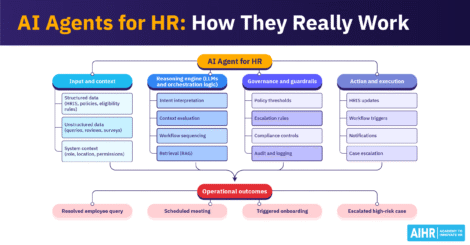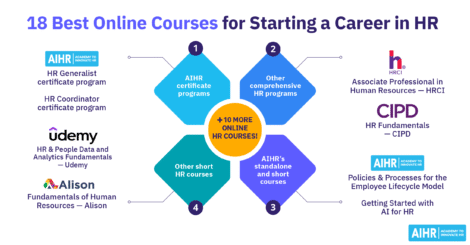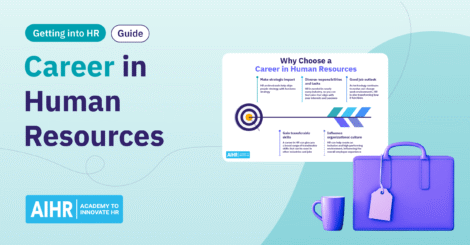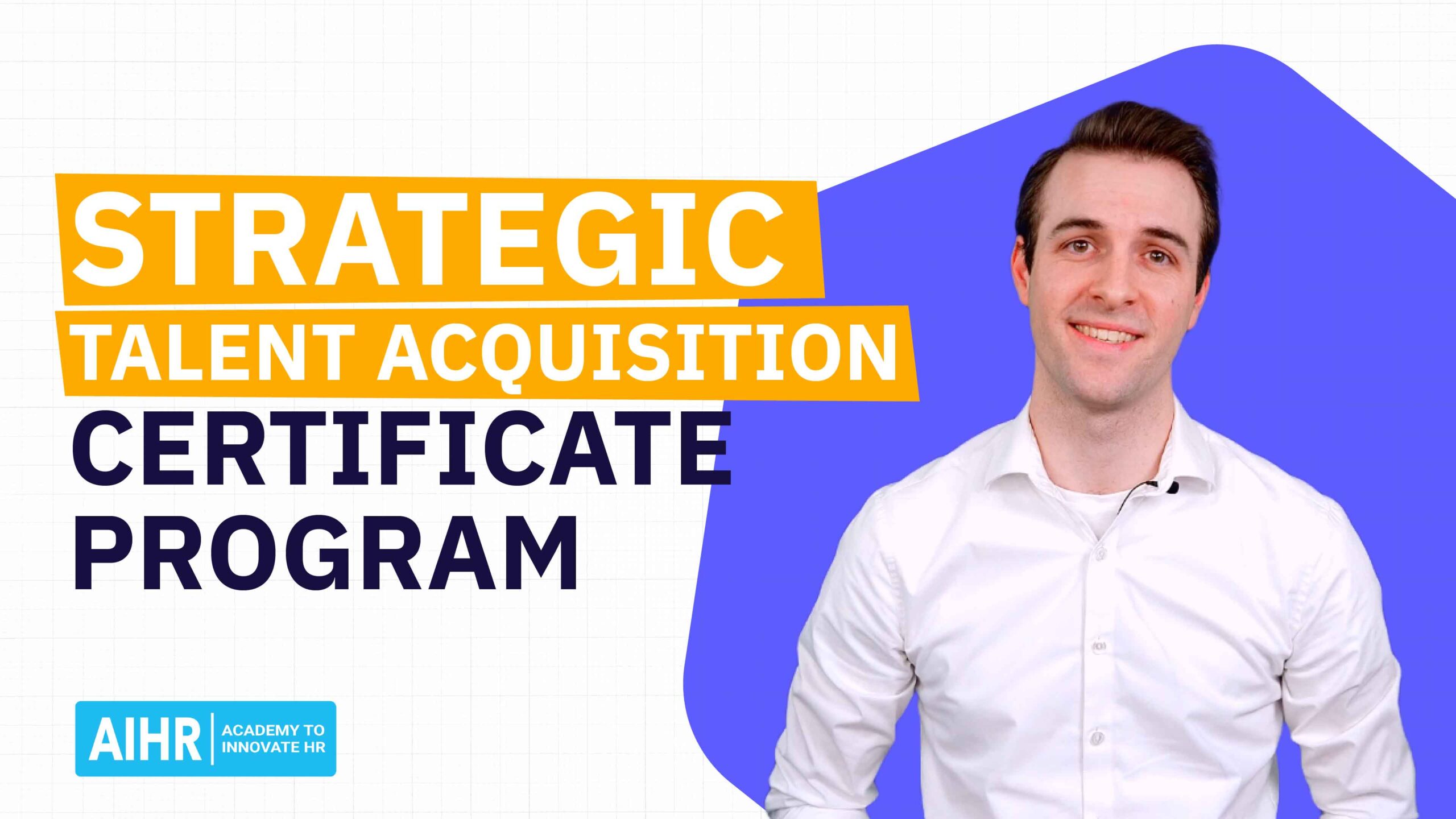When a current employee applies for a different role within the company, you need a custom set of internal interview questions.
With internal candidates, the focus shifts from assessing basic qualifications and cultural fit to evaluating a candidate’s performance within the organization, their way of working and collaborating with others, and their growth potential.
In this article, we provide thirty-seven internal job interview questions you can use to create your own list of questions for internal candidates. Let’s go!
Contents
What is an internal interview?
37 internal interview questions and answers
– Leadership interview questions for internal candidates
– Behavioral interview questions for internal candidates
– Motivational interview questions for internal candidates
– Collaboration interview questions for internal candidates
– Contribution and achievements questions for internal candidates
– Scenario-based questions for internal candidates
Internal interview tips for HR
What is an internal interview?
An internal interview is a formal discussion between an employee and their current employer about a potential new role or position within the same organization. Similar to an external job interview, it evaluates the employee’s skills, experience, and fit for the role.
Interviewing internal candidates can occur in various situations, for example, in the context of internal mobility. Think, for instance, of:
- Promotions
- Transfers
- Newly created or opened roles
- Job rotations
- Job swaps.
Internal interviews differ from traditional job interviews because the candidate, already a current employee, is familiar with the company’s operations, policies, and culture. They may also have an existing relationship with the hiring manager or the team they would join if selected for the role.
37 internal interview questions and answers
Below are 37 interview questions for internal candidates you can use to help you understand whether an existing employee is the right person for a promotion, a new role, a transfer, etc., along with a sample answer for each question.
The questions fall into the following categories:
- Leadership interview questions for internal candidates
- Behavioral interview questions for internal candidates
- Motivational interview questions for internal candidates
- Collaboration interview questions for internal candidates
- Contribution and achievements questions for internal candidates
- Scenario-based questions for internal candidates
Every example question also comes with a brief explanation of why it can make sense to ask it.
Leadership interview questions for internal candidates
Internal promotion interview questions are important when recruiting for managerial roles to ensure candidates can manage teams and projects successfully. They must know how to prioritize tasks, make quick and effective business decisions, and adequately handle conflicts within a group.
1. Describe your leadership style.
“I believe in giving my team the autonomy to approach tasks in their own way whenever possible. I also make an effort to involve them in decision-making and actively support their professional growth, taking on more of a coaching role to help them succeed.”
2. How do you approach making difficult decisions that may not be popular with your team?
“When I have to make a difficult decision, I focus on gathering all the relevant information first. Once the decision is made, I communicate it clearly to my team, explaining the reasons behind it and acknowledging any concerns they might have. I also make myself available for follow-up conversations to ensure they feel heard and supported, even if they don’t fully agree with the outcome.”
3. How would your current team members describe you?
“My current team members would probably describe me as a hands-off manager who trusts them to do their jobs and who is there when needed.”
4. What are three personality traits you are most proud of?
“My top three personality traits are my belief that a positive mindset can help you achieve (almost) anything, my ability to listen actively, and the fact that I take a moment to reflect before I react or answer to a situation or question.”
5. How do you plan to improve your leadership skills?
“Based on feedback from my current team members, I’d like to improve my coaching ability further. I plan to get a mentor to help me identify my blind spots in this area.”
6. Tell us about a time you’ve made a poor leadership decision. What were the consequences, and how did you address the mistake?
“In a previous management role, I relied on my team of customer service representatives to accurately update their ticket metrics, which I used to create forecasting reports. However, some data wasn’t recorded correctly, leading to inaccurate reports. I realized that, as a manager, I’m ultimately accountable for my team’s performance. This experience taught me the importance of staying actively involved in my team’s work and addressing potential issues early instead of delegating or overlooking such responsibilities.”
7. In your opinion, what does it take to become a successful leader?
“I believe that being open to constructive feedback, acting on it when necessary, and genuinely listening to team members are the most important qualities of a successful leader.”
8. What do you think is a challenge you will encounter as a manager, and how do you plan to tackle it?
“At some point, we may have to deal with budget cuts or even people losing their jobs. If that happens, I believe in being transparent with the team—clearly explaining the reasons behind the decisions and the challenges the company is facing.”
9. Why should we hire you for this position even if you don’t have previous managerial experience?
“Although I may not have held a formal managerial position before, I was the interim manager of the team during our manager’s maternity leave. Besides that, I am a fast learner, I have been with the company for four years, and I am passionate about helping teams thrive.”
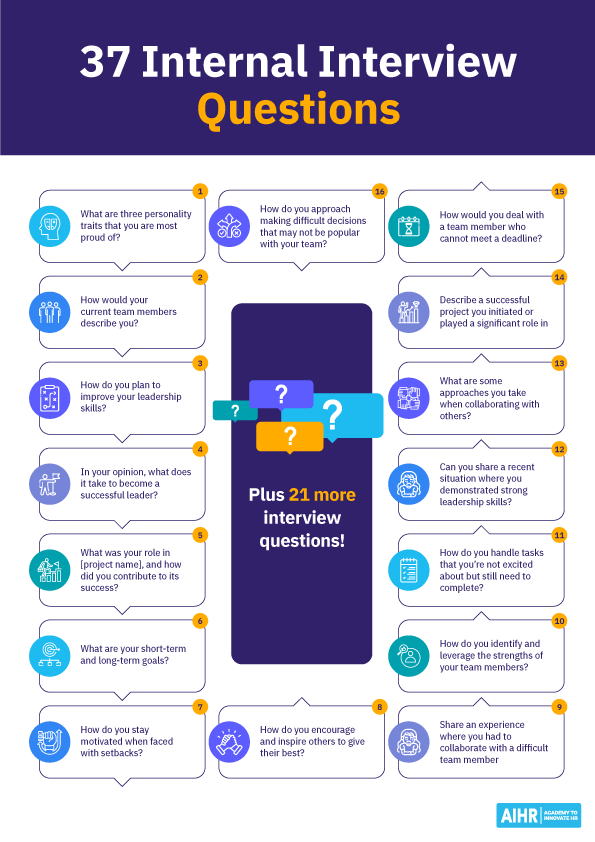
Behavioral interview questions for internal candidates
These questions are critical to evaluating whether an individual fits the job. Past performance in a similar situation is one of the best predictors of future behavior. Additionally, a clean track record within the organization can indicate that a candidate will also do well in other roles.
10. Describe a time at [Company name] when you had to make a hard decision that affected your career significantly.
“When I was pregnant with my second child, I was offered a spot in the management traineeship program here. Accepting it would have meant sacrificing those first few months with my newborn, so I chose to decline. Now, two years later, I’m excited to be interviewing for the same position, bringing both my experience and renewed readiness to step into this role.
11. Can you share one of your most recent challenges at [Company name]? What was it, and how did you overcome it?
“[Company name] is experiencing rapid growth, so when it came to hiring for new roles, we had to make some tough decisions. While our social media team urgently needed a dedicated in-house designer, budget constraints meant we couldn’t hire one this quarter. To address this, my colleague and I took the initiative to interview several freelance designers to ensure our immediate design needs were met effectively.”
12. What was your role in [project name], and how did you contribute to its success?
“In the midst of this project, one of our developers left the company unexpectedly. This created a large extra workload and stress for the remaining developers and could cause a significant delay in the completion of the project. I used my network to search for skilled developers who may be interested and available for the project, and just one week later, a fantastic replacement joined our team.”
13. Can you share a recent situation where you demonstrated strong leadership skills?
“As the marketing and communications team manager, I often experienced other departments sending my team last-minute, ‘urgent’ requests. Despite my team members explaining we had a procedure for such requests, the demands continued, which stressed my team out. I wrote a message for the company’s weekly internal newsletter, outlining the process and inviting everyone with questions to contact me directly. I sent the same message in an email to the company’s entire leadership team, asking them to kindly share the message with all their team members.”
HR tip
For scenario-based questions, you can use the STAR method: Situation, Task, Action, and Result. This method is more likely to elicit detailed answers from internal candidates, and lets you assess their thought processes in different scenarios.
Motivational interview questions for internal candidates
Motivation questions help you understand a candidate’s purpose and commitment to achieving goals. They also help determine how a person reacts under pressure. Someone with the wrong motivations is unlikely to experience long-term success in any role.
14. Why are you interested in taking on this role?
“I’ve been at [Company name] in customer support for three years and learned a lot, but I feel it’s time to take the next step. With my extensive knowledge of our product and the current customers, I believe I am the perfect candidate for the new sales position.”
15. What are your short-term and long-term goals?
“In the short term, I’d like to ensure my team and I hit our quarterly and annual KPIs. In the long term, I’d like to see my team members grow their careers at the company and support their career aspirations in any way I can.”
16. What aspects of your current role energize you the most, and why?
“I love the problem-solving aspect of my role, especially when it involves brainstorming creative solutions with my team. It’s rewarding to see our efforts directly impact the company’s success.”
17. How do you stay motivated when facing setbacks?
“When things don’t go as planned, I like to think of the situation as a (video) game; there simply are a couple of extra hurdles I need to cross before I reach the end goal (and get to the next level). This helps me put things into perspective and motivates me to keep going.”
18. What motivates you to grow professionally?
“I want to keep growing professionally so I can continue adding new skills and competencies to my professional toolkit and remain a valuable employee for the organization. This will also help me future-proof my career.”
19. How do you identify and optimize the strengths of your team members?
“I make an effort to get to know my team members through one-on-one conversations and by observing their work style and areas where they naturally excel. I also encourage open discussions about their interests and professional goals. Once I have a clear picture of their strengths, I align tasks and responsibilities that play to those strengths, ensuring both job satisfaction and effective results.”
20. How do you handle tasks that you’re not naturally excited about but still need to complete?
“I approach tasks I’m less excited about by reminding myself of their importance in the bigger picture. I also try to tackle them early in the day when I have the most energy and focus. Sometimes, I even give myself a small reward—like a coffee break afterward—for completing such tasks in order to keep myself motivated.
Collaboration interview questions for internal candidates
The emergence of hybrid and remote work has made collaboration even more important for maintaining smooth workflows. Asking interview questions about collaboration helps reveal a candidate’s ability to work effectively with others, contribute to team dynamics, and build positive working relationships.
21. How do you ensure everyone contributes to their full potential?
“Whenever I join a new team, I sit down with every team member individually and ask them how I can enable them to perform at their best. I also make it a point to be fully transparent with my team from day one to build trust as soon as possible, so they won’t hesitate to approach me when facing challenges.”
22. Share an experience where you had to collaborate with a difficult team member.
“I addressed the issue directly and told the person that we could continue disagreeing on minor things or focus on the task at hand to achieve results we both could be proud of. Surprisingly, this straightforward approach worked, and we ended up producing excellent results.”
23. How do you handle changes in project scope or among team members while collaborating?
“Changes are inevitable, and you must be flexible in order to manage them effectively. However, it’s equally important for changes to be communicated clearly, have a logical reason, and not be implemented excessively.”
24. Can you describe a time when you had to resolve a misunderstanding between team members?
“Two team members on my project had different understandings of their responsibilities, which led to duplicated work and frustration. I scheduled a quick meeting with both of them, where we clarified roles and set clearer boundaries. I followed up with an email summary to prevent similar misunderstandings moving forward.”
25. What are some approaches you take when collaborating with others?
“It depends on the context. When working with more experienced colleagues, I’m happy to follow their lead. However, when collaborating across departments, I confidently share my perspective and take responsibility for my part in the project.”
HR tip
When interviewing internal candidates for a promotion or a different role, consider involving someone currently occupying that position in the selection process. After all, they have firsthand insights into the skills, competencies, and behaviors requiered for success in that role.
Contribution and achievements questions for internal candidates
Questions about a candidate’s contribution and achievements assess their understanding of company goals and objectives and their ability to align their performance with overall business strategy. The candidate’s answers will also demonstrate their dedication to the company’s success.
26. Describe a successful project you initiated or played a significant role in.
“I initiated the company’s first employer brand project, including a complete rebranding of our careers page. We later won an award for this project and its results, handed out by the National Employer Branding Association.”
27. Share when you went the extra mile in your job to exceed customer expectations or pacify a dissatisfied client.
“A couple of months ago, my shift was almost over when I answered a call from a client based in Australia. She had been a loyal customer for years and encountered an issue with her account. I spent almost two hours on the phone with her on a Friday night to make sure her issue was resolved. She remains a happy customer today.”
28. How have you contributed to the success of your current team?
“As the marketing team manager, one of my main tasks is to shield my team from irrelevant or vague demands from other departments. As a result, the team can work on achieving its goals, experience less stress, and consistently overperform.”
29. Can you share a specific instance where you identified a problem or challenge and developed a solution that improved the company’s operations or processes?
“I noticed our team was frequently derailed by ad-hoc requests from other departments, which disrupted our workflow. I addressed this by setting clear boundaries and priorities, allowing the team to stay focused and consistently meet our targets.”
30. Can you describe when you received positive feedback from a customer or manager based on your work?
“My manager recently complimented me on my approach to team discussions. They appreciated how I always listened carefully to others before sharing my perspective, which they felt fostered a respectful and productive communication style.”
31. How have you measured your accomplishments and tracked your progress in achieving your goals?
“Like the rest of the company, my team works based on OKRs and KPIs. We keep track of those in a shared Google Sheet where everyone is responsible for updating their data every week.”
32. How have you used your experience and knowledge to contribute to the company’s growth and success?
“Before joining [Company name], I worked as a Chief People Officer for fast-growing scale-ups with almost no people processes in place yet. When I joined this company two years ago, I knew exactly where to start, helping build sustainable hiring and onboarding practices that supported our rapid growth.”
Scenario-based questions for internal candidates
Scenario-based questions evaluate problem-solving skills and candidates’ ability to manage complex concerns. They allow candidates to share details of the typical challenges they face at work and how they usually tackle them.
33. How would you deal with a team member who cannot meet a deadline?
“My response would depend on the situation and the team member’s track record. If it’s an isolated incident and they have a valid reason, I’d offer support and flexibility. If missed deadlines are a recurring issue without justification, I’d schedule a one-on-one meeting to understand the root cause and create a plan to address it.”
34. How would you maintain a positive relationship with a customer who has made several unreasonable demands?
“I’d start by seeking advice from experienced colleagues who’ve faced similar situations. If they can’t provide a solution, I’d escalate the issue to my manager to ensure we address the customer’s concerns appropriately.”
35. When asked to take on a task outside your job scope, what would you do to learn the knowledge and skills to perform the tasks correctly?
“That depends on the task and the skills necessary. If the skills are easy to learn, I’d ask a colleague who’s already mastered them if I could spend some time with them to learn from them. If the skills require more specialized training, I’d consult my manager to discuss the best approach, whether it’s formal training or additional support.”
36. When you face budget cuts that affect your team’s resources, how would you make adjustments to ensure you still deliver on your tasks?
“I’d start by reviewing ongoing projects to identify those that are ‘nice to have’ versus those critical to achieving our goals. Resources would then be redirected to high-priority tasks to ensure we continue delivering meaningful results.”
37. If a new team member is struggling to adapt to their role, how would you support them?
“I’d schedule regular one-on-one meetings to understand their challenges and provide guidance. I’d also connect them with resources or team members who can help them navigate their responsibilities more effectively.”
Internal interview tips for HR
There’s more to conducting internal interviews than preparing questions to ask. Here are five tips for hiring managers and HR professionals when interviewing internal candidates:
- Review the candidate’s current performance and contributions: This includes understanding their strengths, weaknesses, and how they have grown in their current role. Performance evaluations help HR professionals decide whether the candidate’s abilities and experiences match the job requirements. Past performances also help identify areas of development and measure potential growth within the organization.
- Avoid bias or favoritism based on your existing relationship with the candidate: You should not give a particular candidate preferential treatment just because you know them personally or have worked closely with them. The company risks overlooking the most qualified candidate when personal relationships interfere with hiring decisions. One way to avoid this is by using a structured interview, ensuring every internal candidate must answer the same questions in the same order, and is evaluated against the same criteria.
- Prepare for the interview: Understand the job requirements, as well as the new role’s responsibilities, expectations, and qualifications. Familiarize yourself with the candidate’s responsibilities and achievements to tailor your questions effectively. This preparation helps you assess their fit for the position while addressing both their current contributions and future potential.
- Encourage open communication and ask for feedback: Don’t limit yourself to close-ended questions. Ask open-ended questions so candidates can express themselves more comprehensively and elaborate on their experiences and knowledge. Actively listen, ask clarifying questions, and create an atmosphere where they feel comfortable sharing feedback or asking questions about the role.
- Follow up: After the interview, inform candidates of what’s next. Update them on the hiring timelines, and don’t forget to thank them for their interest and effort, even if they were not selected for the position. Maintain positive relationships by giving them feedback on what they can improve so they don’t hesitate to apply for future roles.
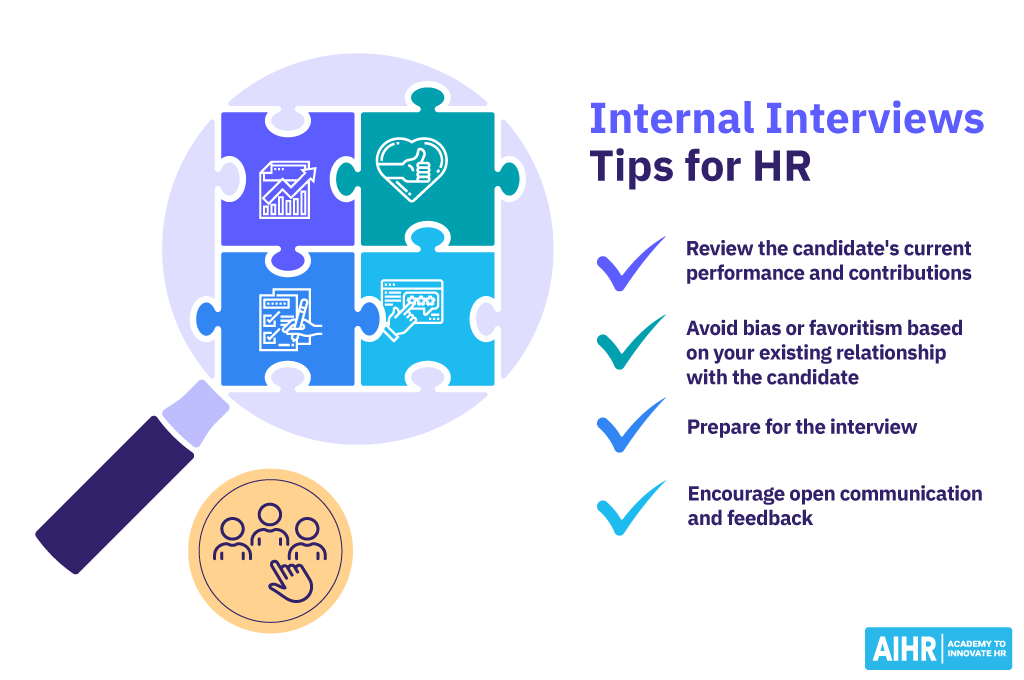
A final word
Internal mobility plays a key role in increasing employee tenure and driving internal promotions. However, a structured approach is essential to make this process effective.
A critical part of this structure is the internal job interview and the questions you asked during each one. Tailor the questions you ask to suit the role you’re looking to fill. Use the examples in this article as inspiration to create a set of questions aligned with your organization’s needs and goals.


